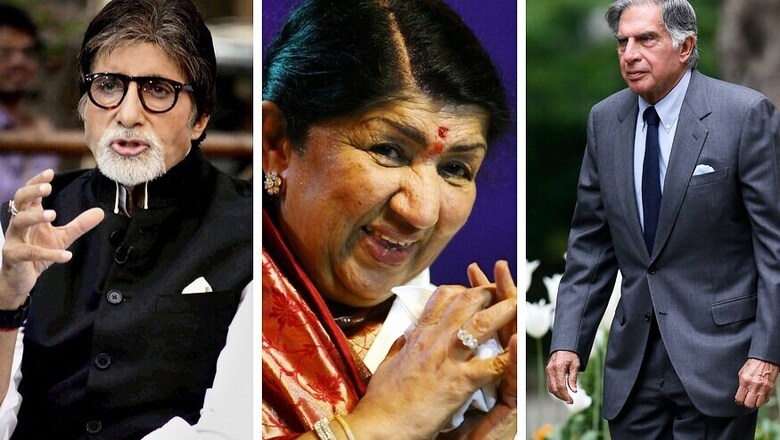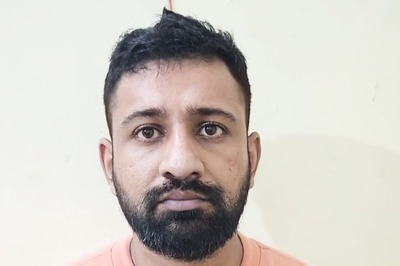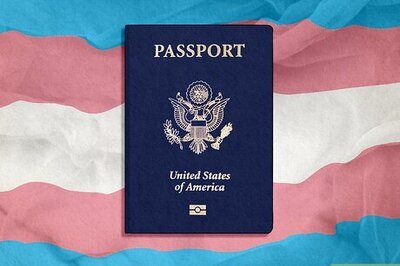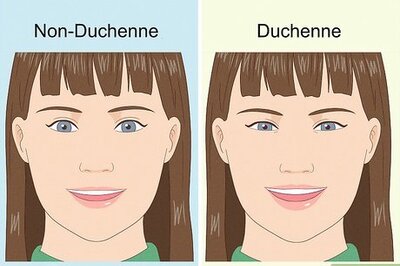
views
New Delhi: The Goods and Services Tax (GST), India’s biggest tax-reform till date, will take effect from midnight with a special session in Parliament’s Central Hall that will have megastar Amitabh Bachchan, legendary singer Lata Mangeshkar and industry doyen Ratan Tata among those in attendance apart from the lawmakers and the President.
Unlike the last midnight event held in 1997 on the occasion of golden jubilee of the Independence at a special session of Parliament, it will be a gala event at its circular-shaped hall that has been loaned for the launch of the historic reform.
Reminiscent of India's tryst with destiny on the midnight of August 15, 1947, the event will be graced by President Pranab Mukherjee and Prime Minister Narendra Modi. Former prime ministers Manmohan Singh and HD Deva Gowda too have been invited to launch a new taxation system that is set to dramatically re-shape the over $2 trillion economy.
The Congress, in an all-out attack on the meet convened by the government, has called it a "grand self-promoting tamasha (gimmick)" to gain publicity. The party also accused the government of "insulting" India's freedom struggle, as the previous three midnight functions held in the Central Hall of Parliament were related to the country's Independence — the first was in 1947 to mark India's Independence, then in 1972 to commemorate its silver jubilee and in 1997 to mark 50 years of Independence.
Terming the boycott as unfortunate, Union minister M Venkaiah Naidu has said that "sooner or later it (Congress) will repent" for its decision. "It is unfortunate that Congress party and some allies have decided to boycott the meeting. What is the reason, I do not understand.... The only reason for boycott, I feel could be that the country should not credit them for the historic, revolutionary taxation reform," Naidu said.
The launch event will start at 11pm and extend into the midnight, coinciding with the rollout of the Goods and Services Tax (GST) regime, PTI quoted official sources as saying. Lok Sabha Speaker Sumitra Mahajan and Vice President Hamid Ansari will also be on the dais along with the President and PM Modi.
Former GST Council chairman Sushil Kumar Modi, former finance ministers of West Bengal and Kerala Asim Dasgupta and KK Mani too have been invited. RBI Governor Urjit Patel and his predecessors Bimal Jalan, YV Reddy and D Subbarao too figure in the list. However, former RBI governor Raghuram Rajan is not on the list.
CAG Shashi Kant Sharma and his predecessors Vinod Rai and TN Chaturvedi, CVC KV Chowdary, three Election Commissioners, including Chief Election Commissioner Nasim Zaidi, NITI Aayog vice-chairman Arvind Panagariya, Metro man E Sreedharan, editor S Gurumurthy, agriculture scientist MS Swaminathan, UPSC Chairman David R Syiemlieh, CBEC chairman Vanaja N Sarna and CBDT chairman Sushil Chandra have also been invited. Senior lawyers Soli Sorabjee, KK Venugopal and Harish Salve as also heads of industry chambers —Pankaj Patel of FICCI, Shobana Kamineni of CII and Sunil Kanoria of Assocham too are on the list of invitees.
Sources said Parliamentary Affairs Minister Ananth Kumar has written a letter to all Lok Sabha and Rajya Sabha MPs requesting for their presence. Members of GST Council too have been invited.
The GST Bill was originally piloted by Mukherjee when he was the Finance Minister in the previous UPA regime. The GST Council, that brings together the central and state governments, has met 17 times to thrash out how the tax will work.
Originally, the launch of GST which had been in the works for over a decade, was to be done from Vigyan Bhawan — the largest convention centre in the national capital that has hosted majority of the meetings of the GST Council. But the historic Central Hall was thought to be a better choice considering the importance of the new indirect tax code that unifies more than a dozen separate levies to create a single market with a population greater than the US, Europe, Brazil, Mexico and Japan put together.
The GST has been dubbed as the most significant economic reform since BJP government came to power in 2014 and is expected to add as much as 2 percentage points to the GDP growth rate besides raising government revenues by widening the tax net.
A four-rate structure that exempts or imposes a low rate of tax of 5 per cent on essential items and top rate of 28 per cent on cars and consumer durables has been finalised. The other slabs of tax are 12 and 18 per cent.



















Comments
0 comment